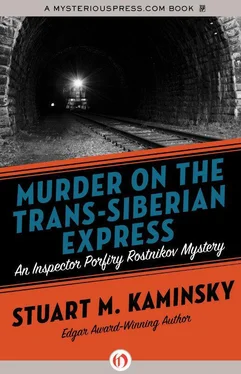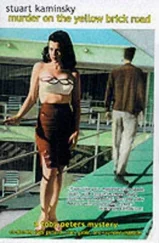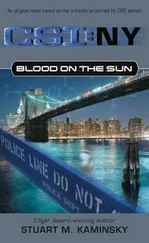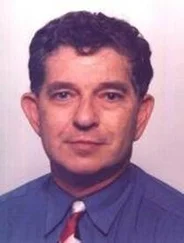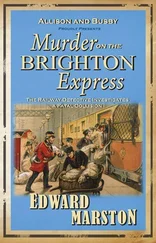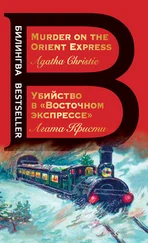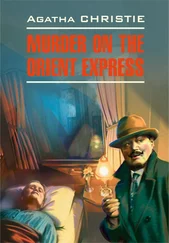Stuart Kaminsky - Murder on the Trans-Siberian Express
Здесь есть возможность читать онлайн «Stuart Kaminsky - Murder on the Trans-Siberian Express» весь текст электронной книги совершенно бесплатно (целиком полную версию без сокращений). В некоторых случаях можно слушать аудио, скачать через торрент в формате fb2 и присутствует краткое содержание. Год выпуска: 2012, Жанр: Полицейский детектив, на английском языке. Описание произведения, (предисловие) а так же отзывы посетителей доступны на портале библиотеки ЛибКат.
- Название:Murder on the Trans-Siberian Express
- Автор:
- Жанр:
- Год:2012
- ISBN:нет данных
- Рейтинг книги:3 / 5. Голосов: 1
-
Избранное:Добавить в избранное
- Отзывы:
-
Ваша оценка:
- 60
- 1
- 2
- 3
- 4
- 5
Murder on the Trans-Siberian Express: краткое содержание, описание и аннотация
Предлагаем к чтению аннотацию, описание, краткое содержание или предисловие (зависит от того, что написал сам автор книги «Murder on the Trans-Siberian Express»). Если вы не нашли необходимую информацию о книге — напишите в комментариях, мы постараемся отыскать её.
Murder on the Trans-Siberian Express — читать онлайн бесплатно полную книгу (весь текст) целиком
Ниже представлен текст книги, разбитый по страницам. Система сохранения места последней прочитанной страницы, позволяет с удобством читать онлайн бесплатно книгу «Murder on the Trans-Siberian Express», без необходимости каждый раз заново искать на чём Вы остановились. Поставьте закладку, и сможете в любой момент перейти на страницу, на которой закончили чтение.
Интервал:
Закладка:
The Yak was alone on his side of the table. Across from him sat Rostnikov, flanked by Sasha Tkach, Elena Timofeyeva, and Iosef Rostnikov. At the end of the table, seated alone, pad open in front of him, a pile of files neatly stacked, sat Pankov, the diminutive assistant to the director. Pankov was a thin, nervous perspirer who, like the office, had been inherited by the Yak. Pankov’s mission in life was to survive. He survived by pleasing the director, whoever the director might be. His fear was that he would displease the director. Nothing, not even a kind word from the Yak, which had not come in the two years Yaklovev had been the director, could give Pankov real pleasure. The little man lived simply and gratefully to continue to exist, eat an occasional sweet, avoid being scolded, and visit the zoo to calm himself in the presence of animals in cages even smaller than his office.
Rostnikov had already given his report explaining the absence of Karpo and Zelach. Since the director had given the order to find the missing musician, he asked no question about the absence of the two detectives.
Rostnikov knew why the task of finding a missing semipopular singer was of any importance. The young man’s father was one of the most important men in all of Russia.
“Elena Timofeyeva,” Rostnikov said without looking up.
Elena had her notes before her. These meetings were the low point of her day. She did not like the Yak. She was not alone in this, but she liked even less the sense of constant scrutiny, a scrutiny she was sure was far greater than that which the Yak gave the others.
True, the one least trusted by the Yak was Iosef, who clearly disapproved of the director’s hidden agendas, which often served his own needs rather than Iosef’s sense of justice. Elena was sure that, had it not been for Porfiry Petrovich, Iosef would have been transferred to another criminal-investigation division long ago.
It did not help that Elena and Iosef were now, more or less, officially engaged. The shadow of distrust had now extended to her.
Elena had no illusions about herself. She was thirty-four, slightly plump like the other women in her family, and reasonably pretty. She kept her straight, dark-blond hair cut short and wore sensible dresses. She had been advised in this by her Aunt Anna, who had once been a senior procurator of Moscow and Rostnikov’s superior. After a third heart attack, Anna Timofeyeva had been forced to retire. Elena owed her career to her aunt and she heeded her advice on most matters, including proper dress. Elena had a small wardrobe of dark, sensible dresses with long sleeves. She always wore some small piece of modest jewelry-a pin, a simple bracelet, occasionally an understated band of silver around her neck.
“Four attacks in three weeks,” she said, passing a small stack of papers around the table. “The stations, as you can see, are all on the Tagansko-Krasnopresnenskaya line. She jumps around, doesn’t select them in their order on the line. First, the Kuznetsky Most station. Then the Kuzminki, and then to the Krasnopresnenskaya station, and then back to Kuzminki.”
The men looked down at the neatly printed computer-generated report before them.
“The first attack, on a Monday, was followed by another eight days later and another two days after that. Then the most recent was three days later. They occur at all hours of the day, a few more late at night but some in the morning, afternoon, or evening. And she jumps about, up and down the line. There are officers in civilian clothing working in shifts at all nineteen stations on the line.”
“Forty-five officers drawn from the uniformed traffic division,” said the Yak, with a small intake of air to show that he had no great faith in such a grab bag of new young police officers and tired veterans with no zeal for this or any other task that might offer the possibility of personal danger. “And what do we offer traffic division in exchange for their help?”
“I told Mihalovich that we would issue an official letter of thanks for his cooperation, personally citing his contribution, should we make an arrest.”
“You mean I will write such a letter,” the Yak said.
“It would be of little consequence if it did not carry your signature,” said Rostnikov.
Normally, Rostnikov would have consulted with the director before making such a decision, but the Yak had been missing for four days, unreachable, on a secret visit to Tbilisi. He had given Rostnikov the authority to make necessary decisions. The purpose of the Yaks visit to Tbilisi, which existed in another country, Georgia, was not revealed to Rostnikov and probably never would be.
Rostnikov had chosen not to speculate on the reason for his superior’s mission. Indeed, he knew the destination only because he had been leaving the director’s office when Pankov was in the process of arranging for the Yak’s flight.
“Progress,” said Yaklovev, sitting upright.
He bore a distinct resemblance, at least in his own mind and in his slight distortion of the image in his mirror, to Lenin. It was a resemblance he had cultivated before the fall of the Soviet Union. But the Yak had seen the signs, the attempts to overthrow Gorbachev, the increasing boldness of the drunken lout Yeltsin, the street gatherings and newspaper articles. Before the fall, Yaklovev had shaved, removed the painting of Lenin from his KGB office wall, and passed on information about the personal corruption of several high-ranking Communist apparatchiks to a journalist who was certain to be important in the new Russia.
“We have, as you see on the third page before you, a drawing of the woman. She has made little effort to hide.”
“It could be anyone,” the Yak said.
The drawing before him was of a wide-eyed female between thirty and fifty, with a thin face, large mouth, and dark straight hair.
“We do not actually know what color her hair is or if it is straight or curly,” Elena said, speaking with a confidence she did not feel. “Her head is always covered by a hat, babushka, scarf. She is of medium height.”
“Illuminating,” the Yak said, with only the slightest touch of sarcasm.
Elena glanced at Iosef, who gave her an almost imperceptible nod of encouragement. Yaklovev continued to look directly at Elena but was well aware of the exchange.
“The knife has been described as a common wooden-handled kitchen knife,” she said. “Very sharp. Each attack is sudden, a lunge, strokes to the face, neck, and stomach, no more than five. Then she runs, always up the stairs or escalator, to the street.”
“And all the victims are men,” said the Yak.
“That is correct. All between the ages of forty-five and sixty.”
“Two are dead,” said the Yak.
“Two are dead,” Elena confirmed.
“What links them together besides the woman?”
“Their general age,” said Elena. “Nothing else. One was a liquor inspector. Another a retired postal worker. The others, a suspected drug dealer, a furniture-factory foreman, a bank teller, and the army colonel who was on leave.”
“On leave,” Rostnikov said softly.
“Yes,” said Elena.
“You find that significant?” the Yak asked.
“In the newspapers, the dead colonel is wearing a suit and not a uniform. What were these men wearing?” asked Rostnikov, continuing to make notes or drawings.
“I …” Elena began.
“Suits,” said Iosef. “I believe they were all wearing dark suits.”
“Check,” said Rostnikov. “Be sure.”
“Anything else on this?” the Yak asked.
“Paulinin has the body,” said Elena. “He told us to come to him for a report at eleven.”
That was two hours away.
“Report directly to me,” the Yak said. “Chief Inspector Rostnikov will be on special assignment for a number of days.”
Читать дальшеИнтервал:
Закладка:
Похожие книги на «Murder on the Trans-Siberian Express»
Представляем Вашему вниманию похожие книги на «Murder on the Trans-Siberian Express» списком для выбора. Мы отобрали схожую по названию и смыслу литературу в надежде предоставить читателям больше вариантов отыскать новые, интересные, ещё непрочитанные произведения.
Обсуждение, отзывы о книге «Murder on the Trans-Siberian Express» и просто собственные мнения читателей. Оставьте ваши комментарии, напишите, что Вы думаете о произведении, его смысле или главных героях. Укажите что конкретно понравилось, а что нет, и почему Вы так считаете.
